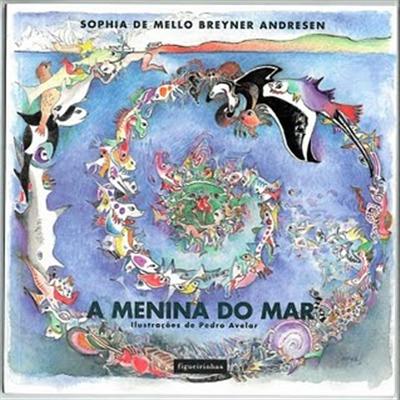Yvette Vieira
Sea of spices

Travel chronicles filled with delightful stories about very people far away from our everyday life.
It is a journey through the collective footprint of a nation that five centuries ago conquered seas never before navigated. It is a tour of a cultural heritage that is in risk of disappearing from the memory of the Portuguese, but against all expectations remains alive in the cultural and social habits of the people who inhabit the islands of eastern Indonesia. It is a travel narrative, a form of writing that I really appreciate, from the writer, journalist, researcher and wandering, Joaquim Magalhães Castro. It is also an excellent opportunity to "walk" thru everyday people as far away from us, but surprisingly with the same surname and physiognomic similarities. It's the famous ability to blend of the Portuguese. These are stories of mysterious islands with names that propel you to and adventure in our Magellan imagination, (I know, the term does not exist, I invent it now!). With a foreword by Ana Gomes, I hope you enjoyed this experience as I did. Happy reading!
The wild rose

It is a historical account of one of the most troubled periods in the history of Portugal.
Above all it is a literary exercise on the life over the most cursed queen of our countries history. Jose Antonio Saraiva wrote a very interesting book, historical fiction if we can call it, being in fact one of the most exciting stories I've read in recent times. She, our wild rose, comparable only to Shakespeare's Lady Macbeth, by ambition, the daring, for her treacherous personality who against all odds, embarks on this journey to be crowned Queen of Portugal, she id the central figure of the book is a character full of unexpected nuances that led her to the abyss. Leonor Teles is so rich in details that even we do not know the history of Portugal, all you want is the scaffold for her, her life would make blushing the Prince of Machiavelli. The plot is very attractive and we never feel cheated or less excited for the outcome. The writing of Jose Antonio Saraiva is dynamic and very visual, we can imagine the Portuguese court, the intricacies of the darkest political tricks of that era and although the end is expected, because it is based on documented facts, the writer leaves it somewhat open, but I am suspicious as I mentioned before, I really enjoyed reading it. I hope that my enthusiasm rubs on you. Good reading.
Memories of portugues rock

It is a tour through the history of Portuguese music in the twentieth century.
It is a manual of modern Portuguese rock Portuguese and an interesting personal testimony about some of the most influential bands and artists in the music of our country. Aristides Duarte is an objective account of the career of several rock groups and musicians in Portugal. Updated biographies of 60 bands in two volumes, through a detailed chronology that also includes discography edited and where there is even room for many reports of concerts and interviews. The author goes back in time to remind ourselves of some of the most memorable songs that are part of our collective memorial and rock groups who were born in years 70 and 80, the so-called boom of Portuguese music, from, The Ban, CTT, the Delfonics, the GNR, Go Graal Blues Band, Dance Group, the Heroes of the Sea, Lena de agua, Iodine, the already smoldering, Mler Ife Dada, Plague and AIDS, Farm Bill, just to name a few. It is a compendium to be read by fans and beyond. It is an important document that serves to outline the temporal course of the music made in Portugal. Good reading.
The litle girl from the sea

It is one of the most beautiful fairy tales of Portuguese literature, written by Sophia de Mello Breyner.
This story is part of the childhood imagination of any child. Why? Because the writing Sofia de Melo Breyner enchants already several generations of Portuguese, who read and reread this story written to be told only to her five children and was eventually heard by millions. The girl from the sea, although it is an obligatory reference in the official programs of the national reading plan, never has suffered from this heavily administrative title. It is a book loved by all who encounter him. The word mandatory never applied to this tale, quite the contrary. It is a reading full of charm, magic and filled with wonderful characters that inhabit the seabed. It is the story of a friendship between a boy who lived on land and a girl who lives in the sea. Sophia de Mello Breyner in her book always liked the ocean, because it is "from the edge of the sea / intact where it all began on the first day of me." And we perpetuate her writing by reading this wonderful book for children. Good reading
The angling and some memories

It is a collection of short stories delightfully written by Antonio Alçada Baptista
The chronicles that flood this book reflect the collective intellectual memory of two countries, Portugal and the author's beloved Brazil. They are the portrait of an era, its players, Antonio Alçada Baptista, through light stories and some even anecdotal that deserve a careful reading. It is a book easy to read, very entertaining, because it speaks of a Portugal, under the perspective of a man who roamed the literature here and in the other side of the Atlantic. Some of the texts contained in this collection had already been published in a women's magazine, however the time leaves no mark in these little stories, quite by the contrary, it makes them even more interesting, thanks to the razor-sharp sense of humor of the writer. I will highlight one of these chronic, very funny, entitled, "lost the covenant." Covers the curious relationship of loyalty among thieves, and that is true story and could only have happened in Portugal, in my humble opinion. Other pearls of this book are his memoirs about some of the personalities of the artistic and literary life of our country and Brazil that reveals so many of the idiosyncrasies of these characters and their way of being in life. And I do not want to seem unfair in relation to any so I won't highlight any, just read them all, you'll see it's no bother, on the contrary, its fun. Good reading.
The last cabbalist of lisbon

It is the debut novel of writer Richard Zimmler in our country that portrays a historical period when the Church was omnipresent in all facets of everyday life. It's the beginnings of the infamy that was the Inquisition.
Richard Zimmler writes his books in English, later translated in Portuguese. The themes of his novels, however, transpose the reader to the various realities of Portuguese society a product of a rigorous research. The Last Cabbalist of Lisbon is the result of this study, a dark age dominated by fear and terror that was the Inquisition. Being an American of Jewish origin, the writer of course researched the life of Jews in this period and the result is a very interesting novel about a New Christian, Berekiah Zarco, a young disciple of the famous Cabbalistic school of Lisbon who sees his family involved in crime. It is a sort of historical thriller that depicts the life of Jews who were forced to convert to Catholicism, but continued to maintain their traditions and habits in the twilight of their secular homes. It is a fictionalized portrait of the time, although all the historical facts are known based on the year of the Lord 1506. It is a very interesting book, because it addresses the Cabbala, a branch of Judaism very trendy recently, thanks to Madonna. Above all it is a novel full of action, with a murder to uncover and in the middle we have a kingdom that reluctantly has to implement a dogma that seeks to pursue all who profess a different faith, imposed by a castrating church. All the ingredients for a good read.
The amazed stories

They are stories written by the pen of Mia Couto, already published in a newspaper, covering the post-war of Mozambique. The fantasy begins
What fascinates me in the African writers is their poignant imagination, anything is possible, literally. Trees that swallow people, talking animals, spirits that haunt the living, ghosts that materialize in different shapes, there is no impossible. The limit of the imagination does not exist. Mia Couto fits into this category. A day dreamers who heard these enchanted stories in his childhood, or rather amazed. They are tales that brings us to another world. Africa, the continent that the writer loves and who never gests tires of describing, as if it didn't exists, as it were a fantasy. He describes dreams with ambiguous characters; some more than others, that bring us to parallel realities, like a kaleidoscope full of colors and unexpected patterns. Language is his assistant in this collective memory, full of words, fluffy ones, strange sounds that to ears accustomed to the Portuguese seem magical. The intention is that. Transporting the reader to his universe very distant, but yet so near. It seems, but it is not. These are stories that want to pretend truth, as the author writes. It is the reader to decide whether to stick to the end. I hope you read it. Happy reading!
The chronicles of the good rascals

Is one of the books written by the highly successful journalist, Mario Zambujal. A very entertaining reading of the adventures of a group of rogues and the Lusitanian way.
It is one of the most successful books of this Portuguese writer. Although Mario Zambujal has cited in more than one occasion that is a book that haunts him, because everyone keeps talking about it and it marked his career, the fact is that it has a simple structure and the characters created that make this story a pure delight for anyone who reads it and rereads it. He said even here, in an interview he granted me, and that he wrote it to do amuse some friends. Good! The chronicles of these rascals are so funny and plain, we can create a great empathy with the adventures of this bunch of losers, much to the national taste. They think they are smart, but they are sadly mistaken. The structure is also curious, because each chapter describes the "career" of crime of each of the rogues. The ending is hilarious! The way they intend to carry out a daring assault on the Gulbenkian Museum, is the epitaph of all that one should never do when trying to rob a heavily guarded building. Imagine my enthusiasm for the book was such that when I first visited the Foundation, I was imaging the heist on my mind, laugh alone remembering all the mess this alleged swindlers caused on the Arabic room. I must say that my behavior at the time caught the attention of one of the security and not for the best of reasons. I looked like a bit crazy. The book is a delight and Mario Zambujal, please forgive me, but it's one of those books who "bear" with us always. Happy reading!
Love of perdition

It is one of the most representative books of Romanticism in Portugal. It is also one of the greatest masterpieces of literature in our country.
Love of perdition is one of the greatest classics of Portuguese literature, why? Because Camilo Castelo Branco is a great writer, is one of the sacred monsters of Portuguese literature and with a personality that equals this books, as he also so passionately and voracious lived as the characters he described. Let's start with the book, is the cursed romance between Simon Botelho and Theresa Botelho de Albuquerque. A love doomed from the first breath, due to old enmity between two families, the similarities with Shakespeare's Romeo and Juliet end up here, although there are fights, blood and tears in abundance.
It is a novel of extremes. Or is everything, or is nothing. The love of Simon and Paula is so violent that ends up infecting everything around then. It is a virus that spreads through the plot and that "attacks" almost all the characters. A fever of incurable romanticism that leads them to commit the most foolish things in the name of the noblest of sentiments. This is exacerbated passion, troubled and tumultuous with bloodlust that ignites page by page in an interesting narrative that holds the reader until the expected end. We can even draw a parallel between this publication and the author's life, as Camilo almost lived what he described in his books. He also was a man of strong passions that led him to prison as we all known. We can even say that he lived as he wrote literally. Happy reading!
Happiness with tears

It is the best work of Joao de Melo. A portrait of an Azorean family that could be modeled to any household at the time.
It is a brutal family saga, because it describes the poverty, physical and psychological abuse of a household in the Azores. It is the experience of the characters and three brothers, Nuno Miguel, Luis Miguel and Maria Amelia, from childhood to adulthood, describing the hell that was their lives until the "liberation". It is an exciting novel due to the writing that spares the reader, is raw and hurts our sensibilities in certain passages, but in good time. João de Melo doesn't gild the past, not sweetens, he subdues the words to pass feelings and emotions that not leave the reader indifferent.
The interesting thing is that this book is that could be transposed to the reality of any family frame. The mistreatment and abuse inflicted on children, hunger, child labor imposed by poverty and ignorance in an impoverished country. The exodus of islanders to the mainland is another issue very well described by the author, young people who went to seminary in search of a free education and a better life. There are plenty of Azorean and Madeiran when reading this book, the generation of the 1940th, feel really portray while reading this book so much so that they say it's their life story and some cry because it hurts to remember, even after a long time. A sociological and historical decal that generated one of the major novels of Portuguese literature and was deservedly awarded more than once. Good reading.
Podcast
Eventos
-
MMI- Reabertura de aquário dos bacalhaus
17-09-2016
O Museu Marítimo de Ílhavo reabre o Aquário dos Bacalhaus, depois de um período de obras de...
-
Cineteatro louletano- Programa Dezembro
 12-02-2016
12-02-2016
No dia 15, sexta-feira, às 21h00, há uma estreia que resulta de uma coprodução entre o Cineteatro...
-
Teatro Baltazar Dias-Programa Dezembro
 12-09-2015
12-09-2015
O último programa do ano que encerra como sempre com música... Feliz ano novo 2025...
-
CCVF e CIAJG- Concertos e Guidance
 06-06-2015
06-06-2015
A Oficina desvenda os primeiros dois concertos de 2025, a 18 de janeiro e 26 de fevereiro, no Centro...




